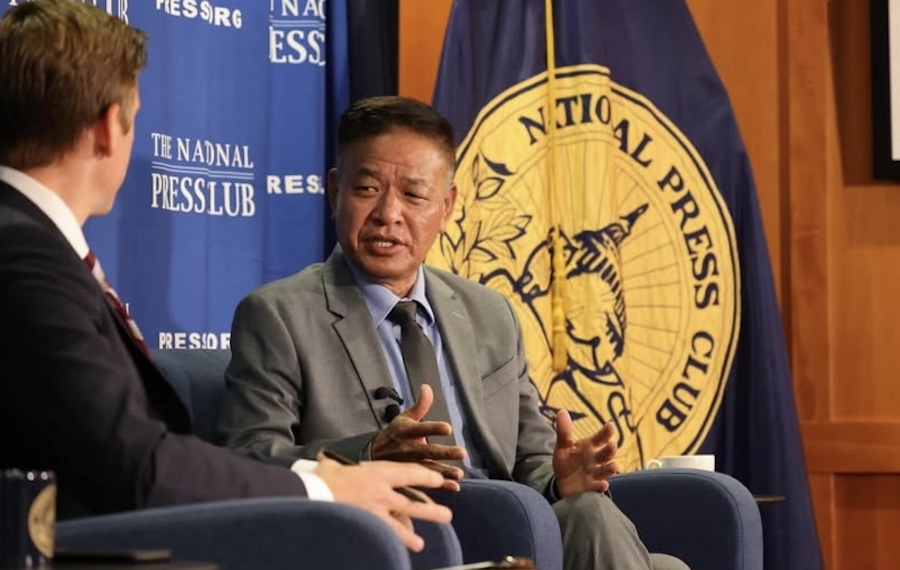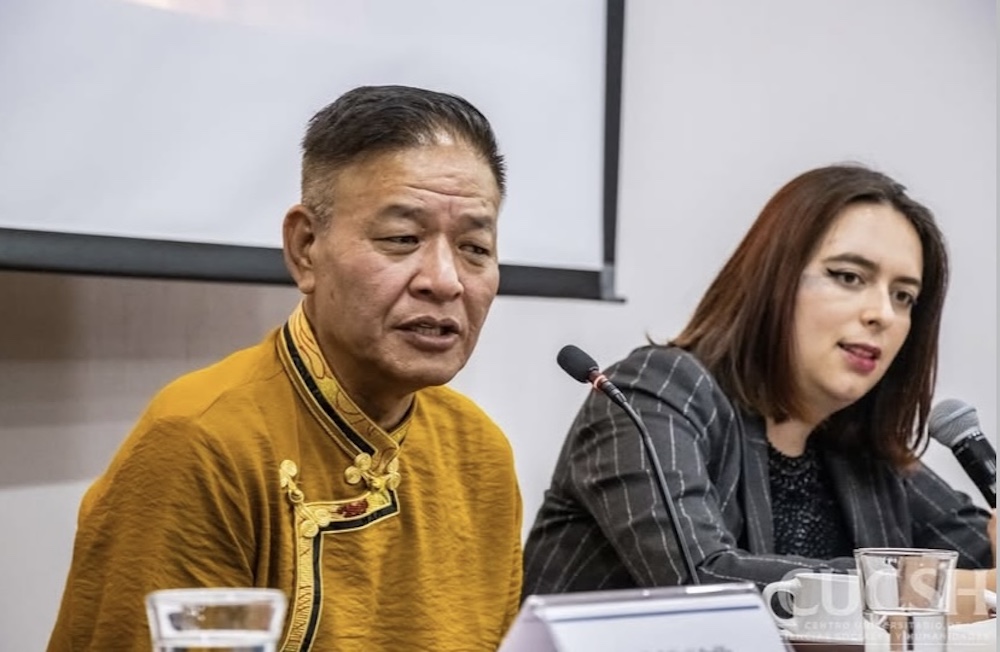Tenzin Nyidon
DHARAMSHALA, Oct. 31: The President of the Central Tibetan Administration (CTA), also known as the Tibetan government in exile, Penpa Tsering, announced that a conference will be convened to examine the historical validity of China’s so-called 1793 ordinance mandating the use of a “golden urn” to recognize Tibetan Buddhist reincarnations. Speaking at the National Press Club on Thursday, he refuted China’s historical claim, asserting that “there is no documentary evidence” to substantiate it.
The CTA President stated that the forthcoming conference aims to expose the lack of historical legitimacy in China’s narrative. “The reincarnation system is a matter of faith, not a political tool,” he emphasized. “And the Tibetan people will decide the future of the Dalai Lama lineage—not Beijing.”
President Tsering further condemned Beijing’s 2007 “Order No. 5,” which requires government approval for the recognition of reincarnations of Tibetan Buddhist teachers. “It is absurd that an atheist government wants to manage the spiritual succession of Buddhist leaders,” he said. On China’s insistence on using the golden urn, he remarked, “Even if such a rule existed during the Qing dynasty, it was never consistently used. Were the eight Dalai Lamas before 1793 not real Dalai Lamas? The tradition existed long before that.”
He added that even after 1793, the urn was rarely used and “only manipulated in the case of the Chinese-appointed 11th Panchen Lama.” Criticizing Beijing’s contradictory stance on reincarnation, he said, “A communist government that does not believe in religion is ordering His Holiness not to be reborn outside Tibet.” He also pointed out that historical precedents exist for Dalai Lamas being born beyond Tibet, such as the fourth Dalai Lama in Mongolia and the sixth in India. Quoting the Dalai Lama’s wit, he added, “If the Chinese government truly believes in reincarnation, they should start by finding the reincarnations of Mao Zedong and Deng Xiaoping.”
The Tibetan political leader’s remarks came in response to a question regarding His Holiness the Dalai Lama’s statement on July 2 affirming the continuation of the institution of the Dalai Lama.
President Tsering explained that prior to this announcement, the only formal reference from His Holiness was the 2011 document in which the Dalai Lama stated that he would make a decision regarding his reincarnation upon reaching the age of 90. “His Holiness has addressed this issue in many ways over the years—sometimes saying the next Dalai Lama could be a woman, sometimes that he could appoint an emanation before his death, and even at times suggesting that he might be the last Dalai Lama,” he said.
He noted that Tibetans around the world had appealed to the Dalai Lama to continue the Gaden Phodrang institution and the lineage of the Dalai Lamas. “On July 2, His Holiness confirmed that the Gaden Phodrang Trust will continue and will be responsible for selecting the next Dalai Lama, in consultation with the heads of different Buddhist traditions and oracles who have had historic ties with the Dalai Lamas,” he said.
Addressing Western concerns about the absence of a clear succession process, the CTA President countered that “if there’s one thing China cannot handle, it’s unpredictability.” He emphasized that the Dalai Lama’s statement provided both clarity and continuity to Tibetans, even as His Holiness continues to predict he will live beyond 130 years.
The Tibetan statesman emphasised that while the Dalai Lama has not specified whether the next successor will appear through emanation or reincarnation, the decision leans toward the latter, something that will only occur after His Holiness passes away.
He also highlighted the international dimension of the issue, pointing to the 2020 U.S. law signed under President Donald Trump that allows sanctions against Chinese officials involved in selecting the next Dalai Lama. “Governments in London and Berlin have also assured us they will issue policy statements,” he said, noting that on July 6, human rights envoys from seven European countries jointly reaffirmed Tibetans’ right to freely choose their spiritual leaders.










